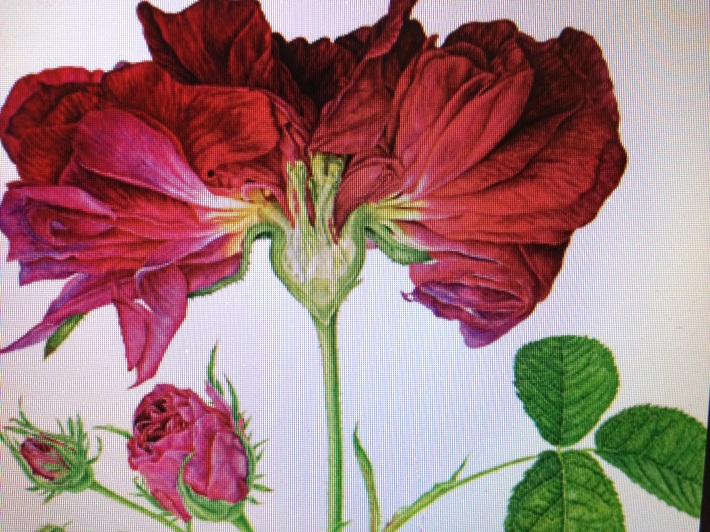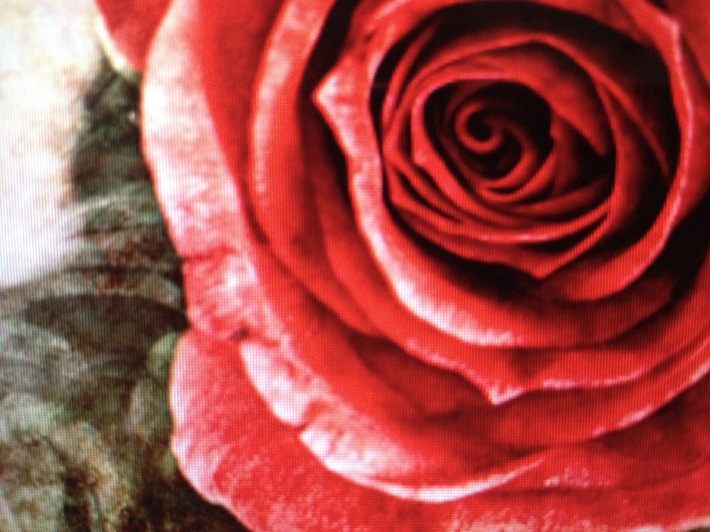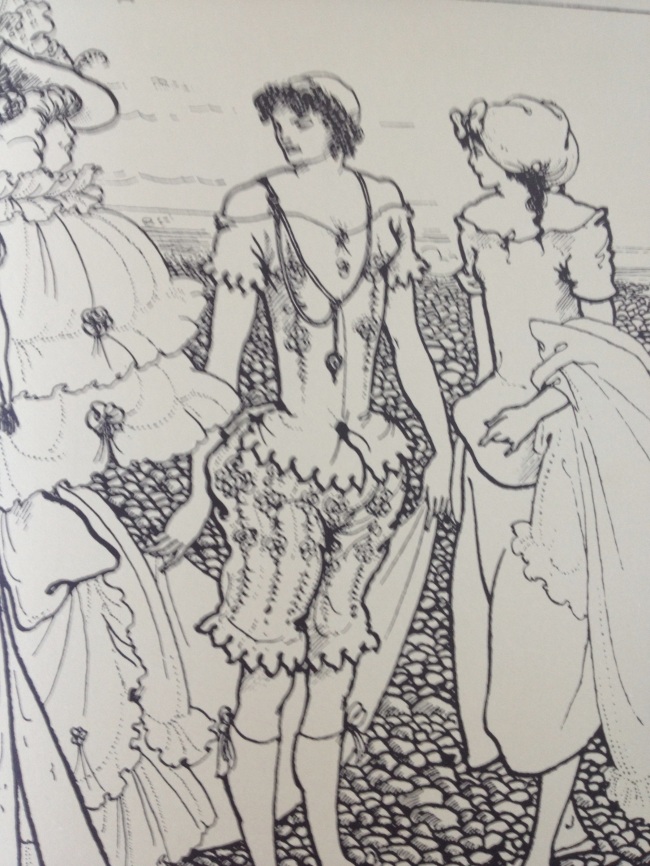




I was asked recently to write something about Japanese Christmas. I have no idea what mental images or (pre)conceptions you may have of this curious time in Japan, but if I think back on those first Christmases and compare them with how I feel now, I realize that I have become acclimatized almost entirely to what I used to find quite creepy. For the Japanese Christmas, in some ways, from certain angles, is quite creepy.
I could write reams on my wonderful remembrances of innocent childhood Christmases, of the fierce, wondrous magic; the school nativity plays; the Christingle kid’s services at our local church with their candles, angels, and clove-studded oranges; of the impossibly exciting thrill of Father Christmas and Christmas eve, and of snow, and presents under the sparkling tree, but I know that many of you reading this will have had very similar experiences, and that even a short invocation of those things will be enough to make you glassy-eyed and nostalgic.
That Japan, a country whose Christians constitute less than 1% of the population, should so fully embrace an entirely Western tradition that has no connection whatsoever to its own culture might seem surprising. But just like the exhortations of those ennervating shopping malls in the west, come November, the carols and Christmas songs are blasted out on loop (sung in English, a language that the majority of the population does not understand), the decorations, the illuminations, just as fancy; there are elaborately made, expensive wreaths on practically every door in my neighbourhood, along with lit-up, flashing, reindeer and Santas in people’s front gardens; baubles, tinsel, Christmas trees, cakes (the strawberry ones, of the American ‘shortcake’ variety), and chicken (KFC); children just as thrilled as their US or British counterparts at the thought of what presents they are about to receive from Santa Claus (parents going along with the fantasy just the way ours did); the whole twinkling, red-nosed nine yards. While for Japanese Christians, who celebrate the occasion more modestly with services at the various churches dotted across the landscape, Christmas is naturally a profoundly important religious festival, for the rest of the nation, it is a celebration, essentially, of a ready-imported atmosphere; a feeling, a mood, a fully realized, set-up fantasy with a no-strings attached guarantee of fun and magic; entirely foreign, exotic even, and yet a part, now, undeniably, of the culture.
What I used to find bizarre, disconcerting, unnerving, and even at times deeply infuriating (though that was probably much more to do with my own issues that I had to deal with at the time) was the fact that, like the ‘Christian’ weddings that the majority of Japanese couples have (with unconsecrated ‘chapels’ at what I call the ‘wedding factories’ – banquet centres with many couples getting married at the same time on the same day, brides going down escalators, others going up them, and then disappearing behind closed doors to have their hair and make up done by professional staff, and ‘priests’, who more often than not have no religious background – no liturgical credentials are required, just the right costume and look (Caucasian) – I could work here part time as a wedding priest probably if I really looked into it); the fact that, like the equally celebrated Halloween and Valentine’s Day, I felt that there were literally NO cultural foundations for these festivities: just something strangely absorbed, something existing purely for commerce, used to really disturb me. Just decoration. Pure surface. As though British people were to begin celebrating the ancestral ghost homecomings of the O-Bon summer festivals, start dancing to centuries old Japanese music, clad in summer kimono, feasting on grilled squid, and banging taiko drums clad in happi coats and hachimaki headbands just because it looked cute and did wonders for sellers of sake; the whole orientalist, Katy Perry geisha drag. Initially during those first two Christmases or so, I just couldn’t get my head round it all. Notwithstanding the post-war ‘Americanization’ of Japan and the capitalist hegemony of western culture worldwide, whose influence I realize cannot be underestimated, the fact that these imported traditions should so embraced so fully and wholeheartedly (and often unthinkingly) by the Japanese was something I used to find unfathomable in those early days. I almost felt offended, as if it were my culture that were being apportioned (and often ‘incorrectly’: I will never forget the mixed-symbol monstrosity of a Santa hanging from a crucifix in one (hilariously) messed up window display).
To get further to the bottom of this complex topic though, I was talking about religion yesterday with some of the more thoughtful and analytical Japanese English teachers at my school, and they found my way of looking at all this quite interesting, baffled slightly by my curious dismay at what I saw as the total disregard of the significance of the crucifix under which these couples were sharing their nuptial vows (can you imagine people having ‘themed’ Islamic, Hindu or Jewish weddings purely for the ‘feel’, in Europe or America?) But for many Japanese, they said, religion is a fluid thing, less fixed and fixated on adherence to one faith to the exclusion of all others. ‘We can believe in it all at the same time’.
I found this interesting. Japan, I would say, on the whole, is about as religious as the UK (and in case you are wondering, I am fully agnostic myself, ‘not being able to say for sure’ the only logical conclusion I can come to), in the sense that people only really go to places of worship for weddings, funerals and the new year. The society as whole is undeniably very secular and permissive, and yet there are always fortune tellers on city corners and tucked away inside strange corners of department stores, sitting there patiently even in the bitterest chills of winter to read palms and predict the future; and a belief in the supernatural, or the soul existing in all things, is very prevalent in this culture (no one will have an office on the fourth floor of a building, for example, as it signifies death), meaning that many Japanese people can see no inherent conflicts or contradictions in moving from a Shinto wedding, to a Buddhist funeral or a Christian wedding; it is just a transference of symbols, for which they have equal respect. There is an intriguingly fluid inclusivity here that I find strangely beautiful in some ways, though I will still never be able to quite get over, personally, that first wedding, – the hallelujahs, the sacred music, the ave marias piped in through state of the art speakers concealed somewhere within those white, plastic walls…..I was both appalled and electrified by its post-modernness, its semantically disorientating, gleaming allure.
And like that immaculately overproduced occasion, Christmas here has more the illuminated, uncomfortably smiling face of Mickey and Minnie in neon at a Tokyo Disneyland parade (my idea of hell). What was once a solemn religious festival, centuries ago, far far away on distant shores, is now a dazzling, sprightly simulacrum: Christmas at its most frolicsome, geared up heights; cheerful and happy, especially if you are a kid, but, to be honest, as a thinking adult, it can bring you down. When Helen came to Japan the first time, I remember she was quite floored and depleted by this feeling, this dark hole we could both feel, from our own cultural perspectives, at the centre of all this empty, commercialized bedazzlement. I can see us going down the escalators in Sakuragicho, Yokohama, the centre of Christmas festivities in this area (they have an amazing, automatic, singing tree that can make me cry in the centre of Queen’s Square); the twittering, bleating, high pitched voices urging us to celebrate the bargains, the oppressively vacuous joy leaving us like strange, disoriented husks, some very potent darkness rising up from under it all like the seismological terrors that do lurk, morbidly, underneath the strata; beneath these shallowly constructed streets and the glib, electrifying frivolity: we both felt exhausted. And we only came back to life again in the much more real-seeming nearby China Town (the biggest in Asia), where we settled down at one of the many excellent restaurants there to have revivifying treats of hot tea, dumplings and Chinese soup. I can remember these feelings perfectly – they feel like pleasant memories, but I can also feel the desolation of that time, connected also to the fact, that in certain ways, I was lost, and didn’t entirely know what I was doing here. I had culture shock, yes, but the foreignness was magnified threefold when it pertained to something I knew so well personally; a Christmas that felt, despite, or because of all the red and the gold, the lights and the music, overwhelmingly empty and alien.





Now I see it all slightly differently. Though I still find it ultimately weird that a culture so different from Europe of America should celebrate Christmas purely for its atmosphere (in that case, let’s start a national celebration of diwali because I love those candles), I wonder whether, all in all, it is really actually different from where I am from. The kids feel the magic just as keenly, of that I am sure as I teach them and hear their stories; businesses prosper just as happily – strawberry growers must do an absolutely roaring trade at this time of year, though quite how and where they grow them out of season I wouldn’t like to conjecture. Restaurants do a roaring trade, as so do all the shops, and though the core of the Japanese celebration is very different – Christmas Eve is seen more as a romantic occasion when couples hold hands and gaze out longingly at illuminations (inspired by characters doing the very same in endless TV dramas), book ‘love hotels’ for secret trysts, and every table at the fanciest restaurants will be fully reserved, ultimately, illuminations are illuminations, gift wrap is gift wrap, and Rudolph is Rudolph. And what does any of all that have to do with the reputed birth date of Jesus Christ in any case?

* * *
We were invited to an English handbell concert a couple of weeks ago, much of it Christmas themed, and though I was a tiny bit skeptical going in, to a brand new concert hall facility in the dreadful suburban zone of Totsuka, I have to say that it was extremely charming. The high ringing, ice-conjuring clarity of the Japanese ladies’ music, their entirely convincing renderings of all the most famous carols, the Skater’s Waltz, and Santa Claus Is Coming To Town brought tears to the eyes of this sentimental old fool, and how could it not? It was lovely. I was taken back, almost, to the frosts of my irreplaceable youth.
And undoubtedly I will also be strolling myself, romantically, down through the Marounouchi illuminations with the Duncan sometime in the coming weeks, and then to some pub or restaurant or other down the Ginza, and I can tell you now in advance, that we will both be loving it. And unironically. We have absorbed it. We like it for what it is. Tokyo, at Christmastime, when it is all lit up, bright, and pika-pika, lights flashing all starry eyed as characters in an anime cartoon, can be extraordinarily, shimmeringly seductive.


Fundamentally, then, I would say that Japanese Christmas, in my personal experience and opinion (I realize that this very subjective piece does not touch sufficiently on historical precedents and so on, sorry), has no fundaments, not really, despite the first recorded celebration of Christmas going back to the sixteenth century (and the fact that Christ is believed by certain Christians here to have not been crucified but to have settled, and married in Japan – he is supposedly buried on the island of Herai in the north of the country), but it is lovely, in many ways I suppose, all the same.
What is most fascinating, for me though, is what happens on December 25th, Christmas day itself.
* * *
In England, my memories are not just of Christmas Eve – when I would find the magical excitement almost unbearable in its intensity and would be told off by my parents and ordered to try and calm down – but also of Christmas Day, Boxing Day, of an entire week of celebrations, where the world ground gratefully to a stop and the days bled into themselves in a pleasant stodge of family time and country walks to get some necessary fresh air into those cooped up lungs; the time extending itself into the New Year, the decorations often not being taken down, traditionally, until January 6th, the day of Epiphany .
The change from the 24th to the 25th in Japan, by contrast, is astonishing. One minute it’s a western winter wonderland, the next it is instant, pure Nippon. You wake up on Christmas Day itself, and all traces of Christmas have disappeared, been whisked away, taken down over night, mere afterthoughts. Suddenly, as if by magic, gone are those green and red holly-wreaths, and in their place are the traditional door decorations of O-Shogatsu, the Japanese New Year – bamboo, bitter oranges, pine – ancient symbols of purity and rebirth, the beginning of a period of long practiced traditions that continue through to the first week of January, when millions descend on Kamakura temples to pray for health and good fortune, koto music fills the department stores, and everything is instantly immediately, potently Japanese. The starkly crystalline mountain air, the profound and evocative white of the indigenous, animist, Shinto priests; the rites of purification. It is at this time, when the starry skies where I live are filled with the sounds of monks chanting and intoning bells, of families going for walks, and kids excitedly taking their white paper O-Mikuji good luck charms from trees, when all the shops shut down for the family gatherings and the traditional foods eaten at this time such as toshikoshi soba and O-sechi-ryori – sweet, expensive treats bought in black, lacquered bento boxes to give mom a rest – it is at this time that I feel at once more outside of Japanese life – these are not my traditions – but simultaneously more involved. It feels natural. Part of the country’s history. The family rituals of drunken togetherness, slobbing around doing nothing for a few days are in fact much more reminiscent of our Christmas and Holiday Season, and we have been invited to several wonderful New Year gatherings, had the unusual foods (sweet chestnut paste; black beans and shrimp, each with its own significance, some really magnificent spreads put on by our Japanese family); it is at this, more genuine, and relaxing time that the flimsy, glitzy Japanese Christmas fades very quickly from memory and is revealed, quite clearly, for what it is: fun, jolly; a wintery novelty: a whimsical, but ultimately rootless, simulation.








































































